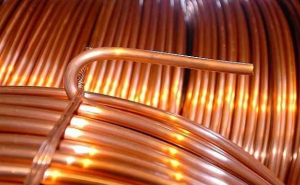A growing number of private sector Chinese investors are on the hunt for gold and copper resources in countries such as Australia and Canada, advisers and analysts said on Monday.Growing investment abroad has been identified by Beijing as a strategic priority as it looks to slow the rise of its foreign currency reserves and help its firms climb up the global value chain.
“In the past year, we saw almost $8 billion dollars of dedicated equity money organised into funds that are based in Hong Kong,” Jorge Ramiro Monroy, managing director of Hong Kong-based adviser Emerging Markets Capital, said at a mining conference in Melbourne.
“These funds by and large haven’t started investing yet. The effect that will have on the market could be quite significant,” said Monroy, adding that the bulk of the funds came from Chinese financial institutions.

China investors were “hugely bullish” gold, in part a strategic push to underpin the yuan as it becomes more freely tradable, said Monroy.
State-owned enterprises, in the midst of an anti graft crackdown, are more cautious, having been badly burned on deals such as Australian iron ore in the past. But they are still looking for projects near completion and are increasingly teaming up with local partners.
“Particularly the bigger ones are looking for sizable projects with cash flows. If it’s a greenfield project it needs to ramp up in a one-to-three year horizon,” said Helen Cai, a managing director of research with China investment bank CICC.
China this month simplified rules to make it easier for domestic companies to invest overseas. Its outbound direct investment by non-financial firms hit $90.2 billion in 2013, up 16.8 percent from the previous year.
Jia Yu, a director at a unit of state-owned China Power Investment Corporation, said that each year at least 30 percent of the company’s total revenue has been targeted from overseas investment. “The Chinese government has strong motivational policies and we have strong pressure,” she said.

“There is a greater interest from Chinese companies to work together with local companies … Particularly around risk identification, risk management and interaction with local stakeholders and government,” said Paul Glasson, chairman of advisory firm Satori Investments Greater China.
Assets that could attract bids from China state-owned firms or their local joint ventures could be the upcoming sale of Australian ports in Queensland and Melbourne, said Scott Gardiner, managing partner at law firm King & Wood Mallesons. (1 US dollar = 6.1380 Chinese yuan) (Editing by Muralikumar Anantharaman)





